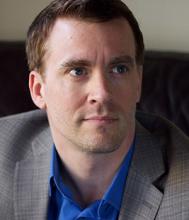Your Agile Team Needs a Therapist
Imagine you’re on an agile development team—and something feels weird. People disagree constantly, and when they finally do agree, no one commits to deliver the solution. Vocal team members dominate the conversation. You don’t trust your teammates. They don’t trust you. This isn’t a team. It’s just a group of people. Does this sound familiar? Because people are people—not interchangeable robots—building high-performing, self-organizing teams takes specific skills and a lot of work. In his experience working with agile teams, Robb Pieper has often taken on the role of therapist—or even an organizational marriage counselor—to break through the people problems that prevent teams from being successful. He discusses specific ideas and techniques for building trust, team building, trust issue debugging, and conflict mining to create and sustain high-performance teams. Robb believes every team needs someone to fill the role of helping coach people through the complicated issues that prevent teams from delivering more effectively together than separately. Can you be that person?
Robb Pieper is Principal Consultant and founder of Responsive Advisors, a management consulting firm focused on holistically improving organizations. He’s a Scrum.org certified trainer and coach having taught agility to thousands of people across the country. Robb has helped numerous clients outside of software development increase agility in circuit board development, financial risk management, human resources, data warehousing, and business intelligence. Robb solves problems often ignored in the agile community, like teaching managers how to work with agile teams and individuals how to work with their teammates on a human level. Robb knows that agility is a business problem, not just a software problem. Robb applies his passion and diverse background to building amazing cultures and learning organizations.


